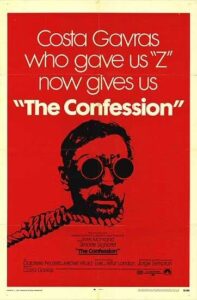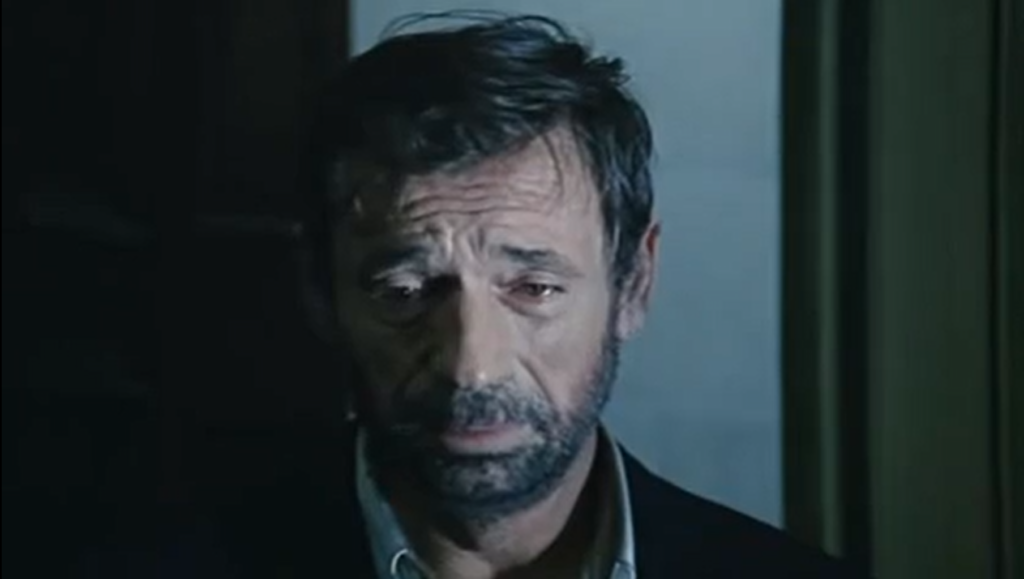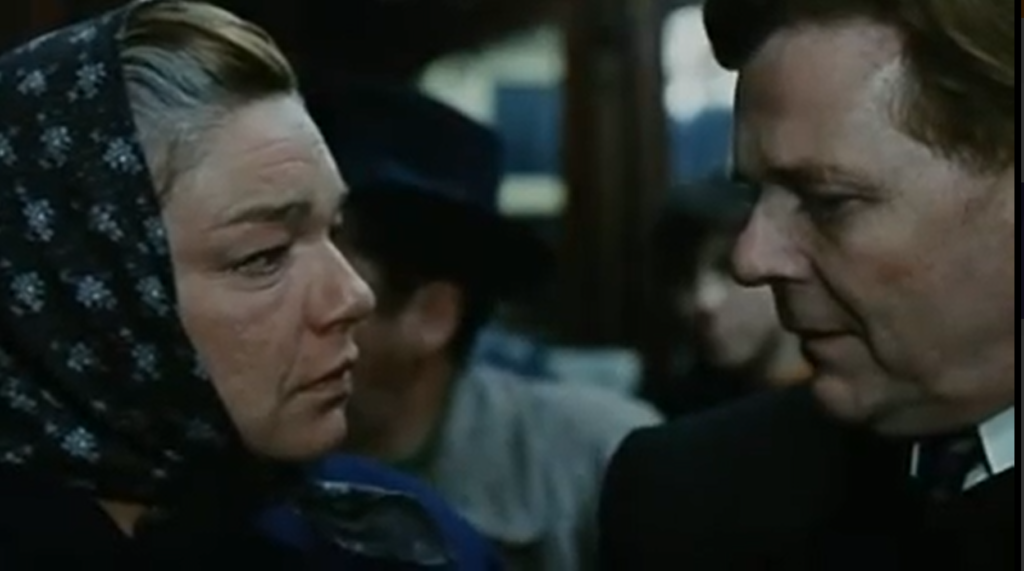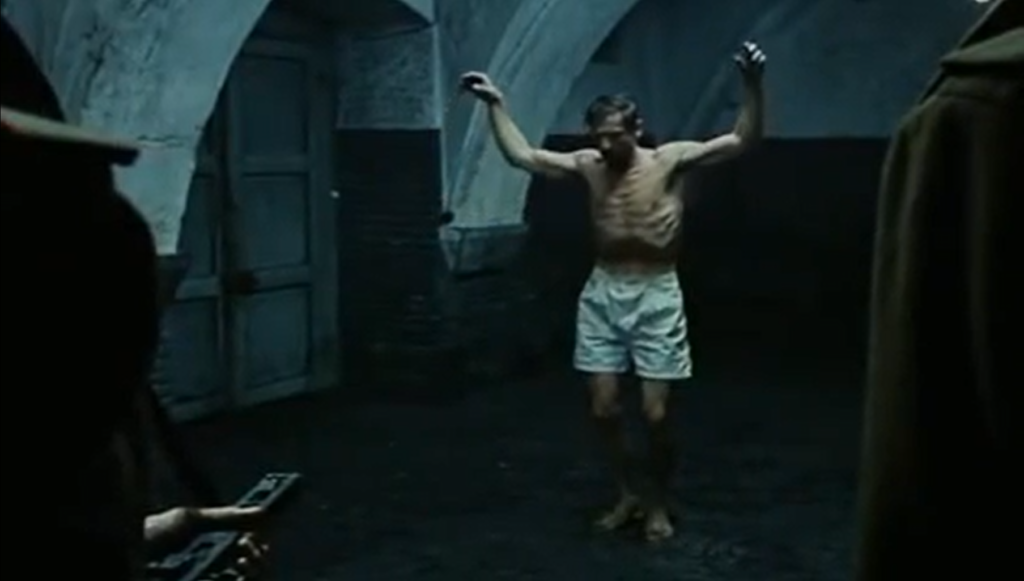“The others are confessing — the only chance to save your neck is to confess, as they are doing.”
|

Synopsis:
A high-ranking government official (Yves Montand) in Communist Czechoslovakia is taken prisoner and forced to confess to treason he never committed.
|
|
Genres, Themes, Actors, and Directors:
- Cold War
- Costa-Gavras Films
- Falsely Accused
- Historical Drama
- Prisoners
- Simone Signoret Films
- Yves Montand Films
Review:
Costa-Gavras followed up his Oscar-nominated political thriller Z (1969) with this hopelessly grueling tale based on Artur London’s experiences during the infamous Czechoslovakian Slansky trial, in which 13 innocent men (11 of them Jewish) were forced to confess to crimes of treason against the Communist Party. Costa-Gavras’ gift for depicting no-holds-barred realism and eliciting fine performances from his actors is in full evidence here; unfortunately, however, the story he’s chosen to tell is so nightmarishly Kafka-esque that it’s truly difficult to sit through for over two hours. Even knowing that the protagonist (who is occasionally shown telling his story in flashback) will survive to write a book about his travails doesn’t help matters much. The Confession is ultimately a film one admires rather than enjoys, and will be of most interest either to Costa-Gavras fans or history buffs interested in the dysfunctional machinations of Stalinism.
Redeeming Qualities and Moments:
- Yves Montand as “Gerard”

- Simone Signoret as Montand’s wife

- An uncompromising depiction of sustained psychological and physical torture

Must See?
No, although it’s recommended for those who can stomach it. Listed as a film with Historical Importance in the back of Peary’s book.
Links:
|
One thought on “Confession, The (1970)”
A must – and extremely curious that it is so hard to find.
My stance is that ‘The Confession’ is so compelling simply because it is so relentless and “nightmarishly Kafka-esque”. Re-enactments such as this, which are not preposterous because they occurred, demand our attention. The first 10-15 minutes have a pronounced calm-before-the-storm feeling; you just know a roundhouse punch is coming – and from there the audience is more or less on-board a runaway train. I didn’t find it so much hard to sit through as impossible not to.
It doesn’t matter if you’re not up on the different ideological, political factions being tossed around here (although that helps). As complex as the details are, at root this is a scapegoat tale. As such, it’s instructive to note the comparison by a reviewer at IMDb to Guantanamo Bay and Abu Ghraib. This is a real-life horror story of power.
Yet, we don’t see the ones pulling the strings. As Montand’s chief interrogator Gabriele Ferzetti (impressive here, as in ‘L’Avventura’, ‘Once Upon a Time in the West’, etc.) says to Montand during their chance encounter after-the-fact, “They were watching us, too.”
Montand is nothing less than revelatory. Though we’re conscious that this is a movie and that he is not coming to any real harm, his (at times) skeletal appearance and body language communicate the inhumanity endlessly thrust upon him. Equally strong (but then, when isn’t she?) is Simone Signoret as his wife.
You may not want to see it again soon after the first viewing – but a second, at least, is perhaps necessary to absorb it properly.
A truly remarkable film.